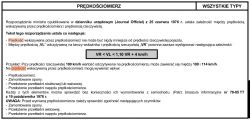Lately, I’ve been thinking about something I’ve noticed while driving: how reliable is the speedometer in my car? I was on a drive recently, and I had my phone mounted with a navigation app that shows speed based on GPS. I noticed a small difference between the speed shown on my car’s speedometer and the speed displayed on the app—around 5 km/h or so. It made me wonder, can we fully trust our car's speedometer, or is this kind of variation normal?
A speedometer is a tool that measures and displays the speed of a vehicle in real-time. It works by using sensors or mechanical components to calculate the rotation of the wheels and convert this data into a readable value for the driver. These days, tools like an interactive live speed meter are becoming more common in some vehicles, integrating GPS and other advanced features for real-time accuracy. Still, it got me thinking—how accurate is the average speedometer in the cars most of us drive?
I’ve read that speedometers are designed to slightly overestimate speed as a precaution. If that’s true, it could explain the difference I noticed. But is there a way for regular drivers to verify the accuracy of this tool without needing expensive equipment or relying on apps?
Have you ever experienced something like this with your speedometer? Do you think this slight difference even matters, or do you trust the tool as it is? And if you’ve ever tried checking your car’s speedometer accuracy, what tools or methods did you use?
I’d love to hear what others think about this!
A speedometer is a tool that measures and displays the speed of a vehicle in real-time. It works by using sensors or mechanical components to calculate the rotation of the wheels and convert this data into a readable value for the driver. These days, tools like an interactive live speed meter are becoming more common in some vehicles, integrating GPS and other advanced features for real-time accuracy. Still, it got me thinking—how accurate is the average speedometer in the cars most of us drive?
I’ve read that speedometers are designed to slightly overestimate speed as a precaution. If that’s true, it could explain the difference I noticed. But is there a way for regular drivers to verify the accuracy of this tool without needing expensive equipment or relying on apps?
Have you ever experienced something like this with your speedometer? Do you think this slight difference even matters, or do you trust the tool as it is? And if you’ve ever tried checking your car’s speedometer accuracy, what tools or methods did you use?
I’d love to hear what others think about this!




